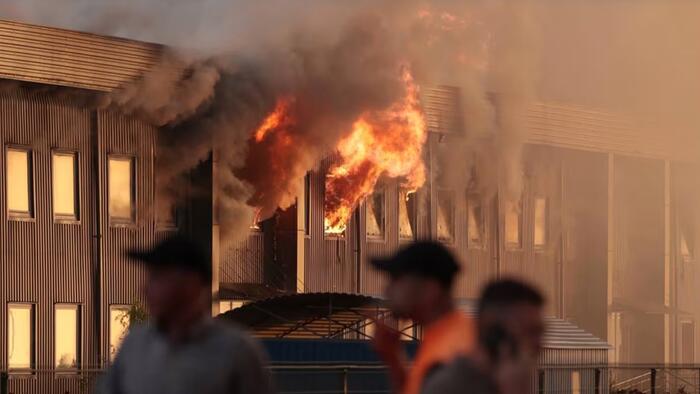


Russia unleashed a massive overnight assault on Ukraine, deploying 400 Shahed and decoy drones along with a ballistic missile, Ukraine military authorities say.
The drones rained down primarily on four major cities, including Kharkiv in the northeast, Kryvyi Rih in central Ukraine - which is President Zelensky's hometown, Vinnytsia in the west, and Odesa in the south. These fresh strikes primarily targeted energy infrastructure and injured at least 15 people.
This month has seen record numbers of daily Russian drone strikes on Ukraine, coming also at a moment of conflicting reports over Trump policy toward arming Ukraine.
"Russia continues to rely on the same tactics," President Zelensky said in response to the latest attacks, while emphasizing the need for stronger air defenses. He's calling for a stronger support stance from Washington.
According to details of the fresh attack on Zelensky's hometown:
Kryvyi Rih, in central Ukraine, faced “the most massive attack … since the beginning of the war,” said the head of the city’s military administration, Oleksandr Vilkul, adding that it involved a ballistic missile and 28 drones. The onslaught sparked several fires and left parts of the city without electricity and water, he added.
Zelensky said Russia had targeted energy infrastructure in the city and that 15 people had been wounded there.
Trump's much touted major Monday announcement merely threatened more Russian sanctions, and set a 50-day deadline for peace talks to happen.
However, the 50-day deadline has left some US lawmakers and European officials fearful that this simply gives Russia time to gain more ground before any potential peace deal is finalized.
"We appreciate President Trump’s decision to supply more weapons to Ukraine, but we would like the US to share in the cost," said EU foreign policy chief Kaja Kallas, at a moment Trump is calling for NATO states to do more.
Below: Kryvyi Rih, Zelensky’s hometown, faces blackouts and water cuts after waves of Russian strikes...
Trump is still holding out the threat that Moscow could face a 100% levy on its goods, alongside secondary tariffs on countries continuing to buy Russian oil.
New measures would also take aim at foreign companies aiding Russian oil, gas and uranium production - which would also be subject to secondary sanctions.
